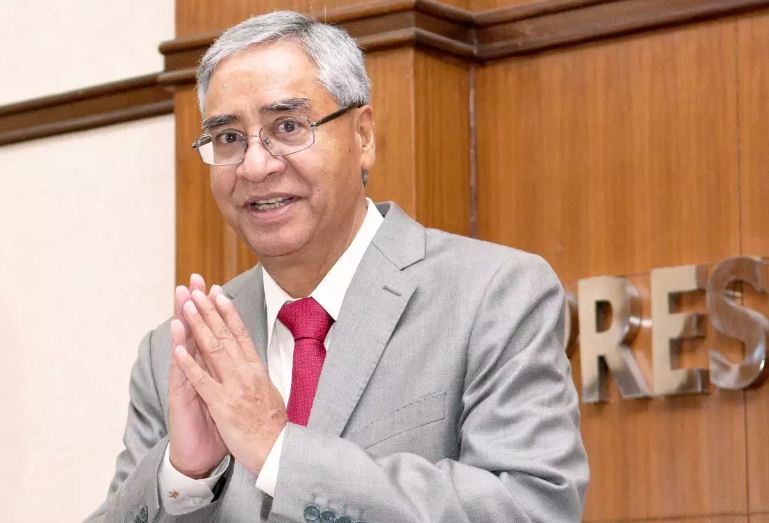Newly sworn Nepal Prime Minister Sher Bahadur Deuba and his government, immediately after assuming the charge has made its intentions clear that China cannot replace India, not now or ever. Deuba’s Nepali Congress along with its five coalition partners recently rolled out a common minimum programme (CMP). The CMP emphasizes the need to resolve issues with India relating to the Limpiyadhura, Kalapani and Lipulek region through diplomatic means.
Udaya Shumsher Rana, former minister of state for finance and a member of Nepali Congress stated, “Nepal, under this government, will be interested in maintaining good relations with all its neighbours. Nepal needs Beijing, and China has been a good neighbour to us, but India will remain special, China cannot replace India,”
As reported by TFI, KP Sharma Oli and his tumultuous reign as the country’s Prime Minister finally come to an end last month. After flirting with China, rejecting India and nearly gifting the Himalayan nation to Xi Jinping — a five-member Constitutional Bench of the Supreme Court directed Nepali Congress President Sher Bahadur Deuba to take charge as the country’s PM.
Read More: Oli out, Deuba in: The new Nepalese Prime Minister is pro-Hindu, pro-India and bad news for China
Deuba passed with flying colours by comfortably winning the vote of confidence in the reinstated lower House of Parliament. The 75-year-old chief of the Nepali Congress secured 165 votes in the 275-member House of Representatives and asserted his claim on the PM’s chair. It is imperative to note that only 136 votes were required for Deuba to win Parliament’s confidence.
Deuba is known for his Pro-India and Pro-Hindu stance. During his previous tenures, the relation between the two countries remained cordial, unlike Oli’s. His first Prime Ministerial stint was from September 1995 to March 1997 while the second was from August 2001 to October 2002, the third was from June 2004 to February 2005. He was relieved from the post by then King Gyanendra Shah reasoning his incompetence in February 2005.
In his last stint in the PM office in 2017, Deuba visited New Delhi on his first assignment outside the country and held fruitful discussions with PM Narendra Modi. Deuba is the party President, whose members have batted for Nepal to dilute the current ‘secular’ constitution and revert to a Hindu state.
In 2015, according to an Indian Express report, Deuba had even informed the high-level leaders in New Delhi that he would do everything in his might to stop the insertion of the word ‘secularism’ in the constitution.
Moreover, political pundits argue that it was India’s backing for Deuba, that the septuagenarian leader was appointed as the Nepali Congress President in 2017. Thus, one can be certain that New Delhi will benefit from Deuba as the centre of power in Kathmandu.
As reported by TFI, relations between India and Nepal soured when former PM Oli showed Indian territories of Limpiyadhura, Lipulekh and Kalapani in Nepal’s revised political map. He further damaged the people-to-people ties by blaming India for bringing the Wuhan virus to Nepal.
To antagonize India, Oli went and sat in the lap of Xi Jinping, thereby allowing the authoritarian leader to usurp territories of the Himalayan country. Oli’s anti-India hate speeches also led to Nepalese Police firing on unarmed Indian citizens.
China tried its best to keep Oli in power. However, with Deuba becoming the Prime Minister, the CCP will be reduced to its old stature as the recent statements prove.
